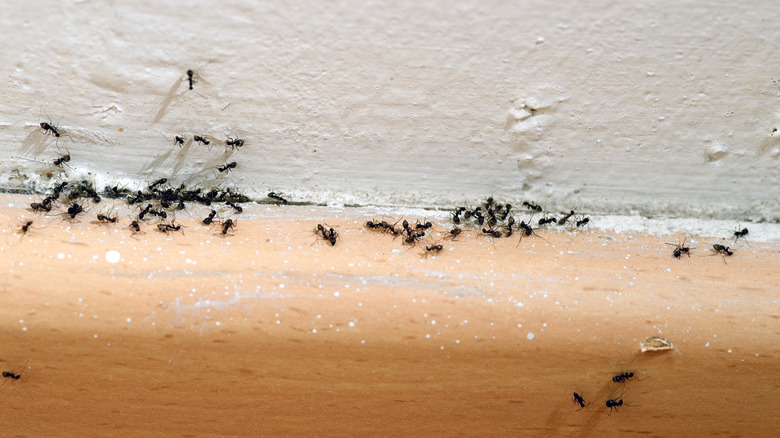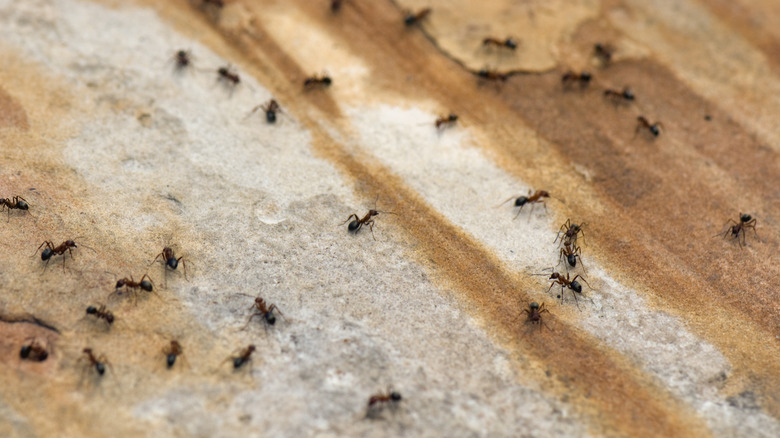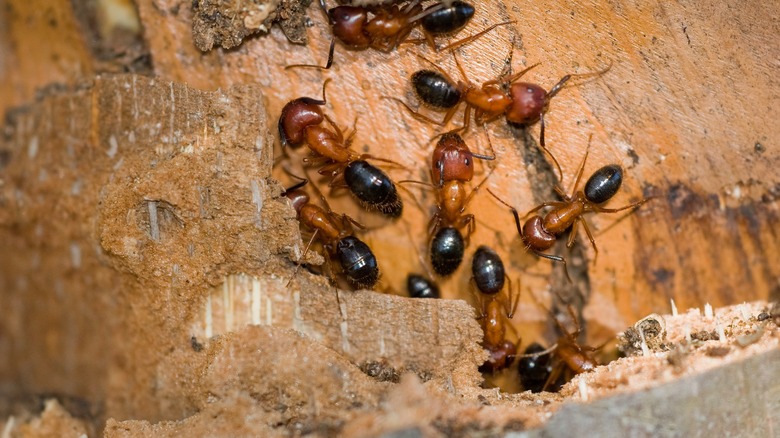Watch Out For These Signs Of Carpenter Ants Invading Your Home
If you're worried about the structural integrity of your home, then you need to take carpenter ants seriously. When these pests are left to their own devices, they can burrow through your home's wood, causing issues with its foundation. If you find yourself in need of repairs to your home's foundation, you could be paying upwards of $8,600, depending on the scope of damage and how severe the infestation was. However, you can work to prevent an infestation by identifying the signs of carpenter ants. Look for frass (sawdust), visible ants, and damage to the wood in or around your home. Additionally, listen for a rustling noise in your walls at night. If you notice these signs, chances are you have carpenter ants.
There are several ways of preventing these bugs. The easiest way to get rid of carpenter ants might be a DIY method you try at home. For example, you could use vinegar to deter these pests from entering your house in the first place. Ants rely on pheromone trails to find food, and vinegar can make this difficult for them. But carpenter ants are between ¼ and ½ an inch in size, so there are any number of entry points for these pests to gain access to your home. This means it might be tough to deter them with vinegar alone, which is why you need to know if you have just a few random ants or a full-blown infestation that warrants a pest control technician.
Carpenter ants don't eat wood, but they chew it
One of the first things you might notice with carpenter ants is the presence of frass or sawdust. These tiny pests leave a trail as they make their way through your home, with frass build-up on floors. You may also see frass in your basement, garage, window sills, or anywhere else without much human activity. Unlike termites, carpenter ants don't eat wood for sustenance — they chew it to make homes for themselves. This can lead to the appearance of small holes. Aside from frass, strange scratching noises might come from your home's studs or beams. You also might notice that these noises are louder at night, when these insects are most active, about 15 minutes after dusk.
A more significant sign of carpenter ants is visible, large ants in your home. It's thought that even one ant can signal an infestation that requires a professional. Yes, there are things to consider before hiring professional pest control, but if you think you have a carpenter ant infestation, there's nothing wrong with having a pro inspect your property. Just keep in mind that there are plenty of pest control company secrets, including dangerous chemicals used to remove pests. Instead, look for non-toxic methods of eliminating carpenter ants, such as non-toxic insecticides, especially if you have children or pets in the house.
Carpenter ants might mean a larger issue in your home
Carpenter ants are most notorious for damaging the wood in or around your home. As these tiny pests make space for their nests, you'll find hollow pieces of wood indoors and outdoors. For example, you might notice tiny holes in old tree branches, logs, timber around your yard, or even the wood used to construct various parts of your home, including decks.
It's worth noting that if you see a sudden uptick of carpenter ants in and around your house, you may have a bigger issue at hand. Namely, your home may have water damage or even mold growth. Carpenter ants prefer to nest in wood that's already been compromised by water, so if you see these pests hanging around, you should contact a plumber to check for any leaks.
If carpenter ants aren't bad enough, any damage they cause is typically not covered by insurance. Since most insurance companies consider this type of damage preventative, you'll probably find yourself out of pocket for any home repairs. Instead, learn the signs of carpenter ants and act quickly, saving your home — and wallet — from unnecessary damage.


